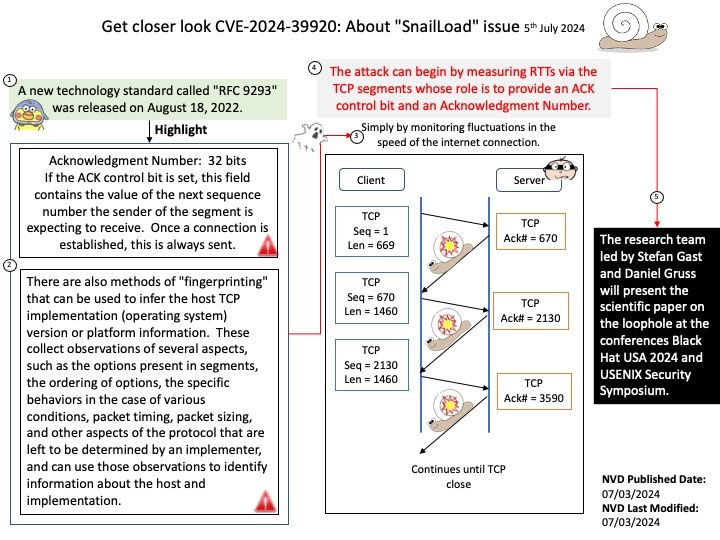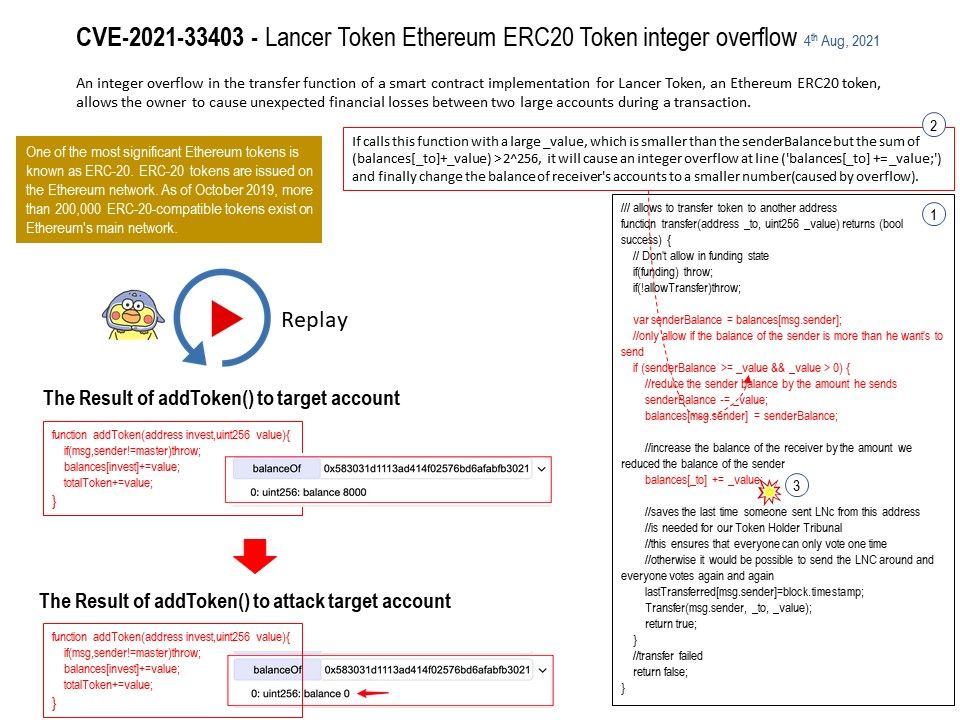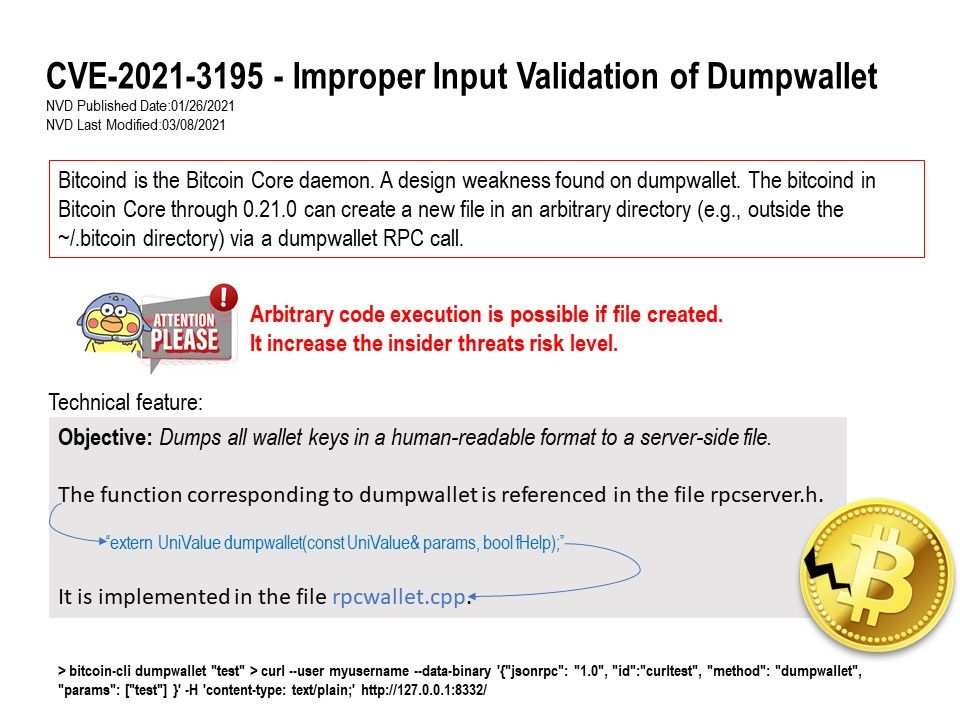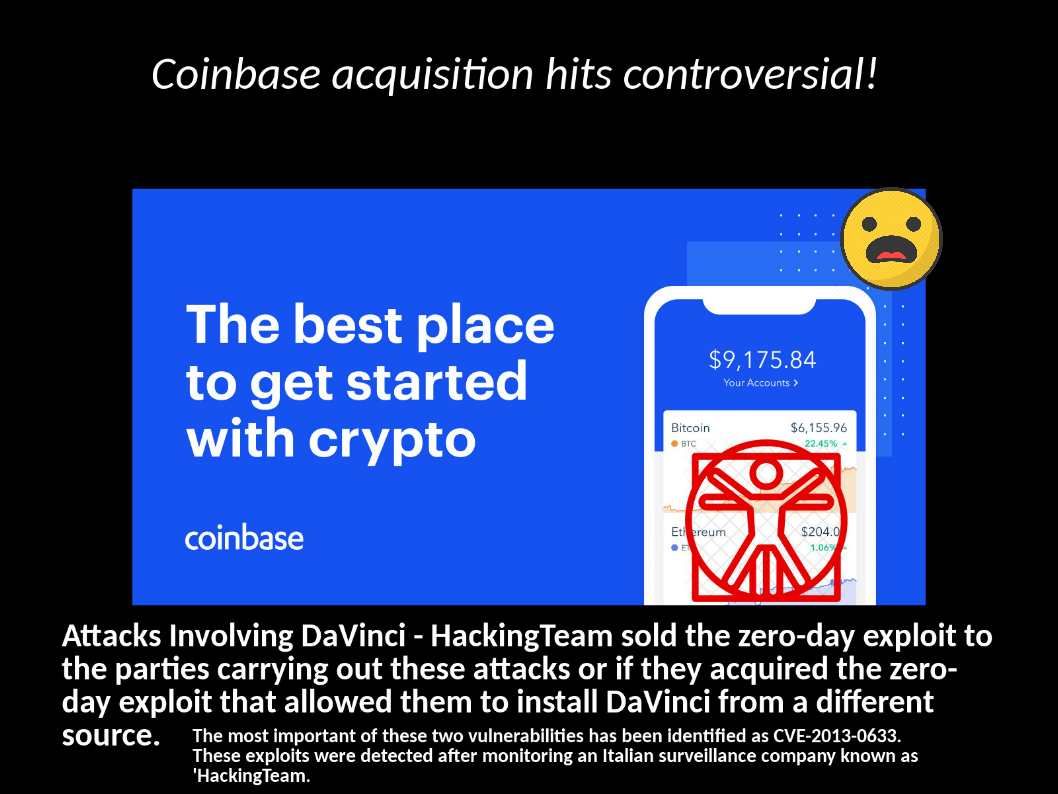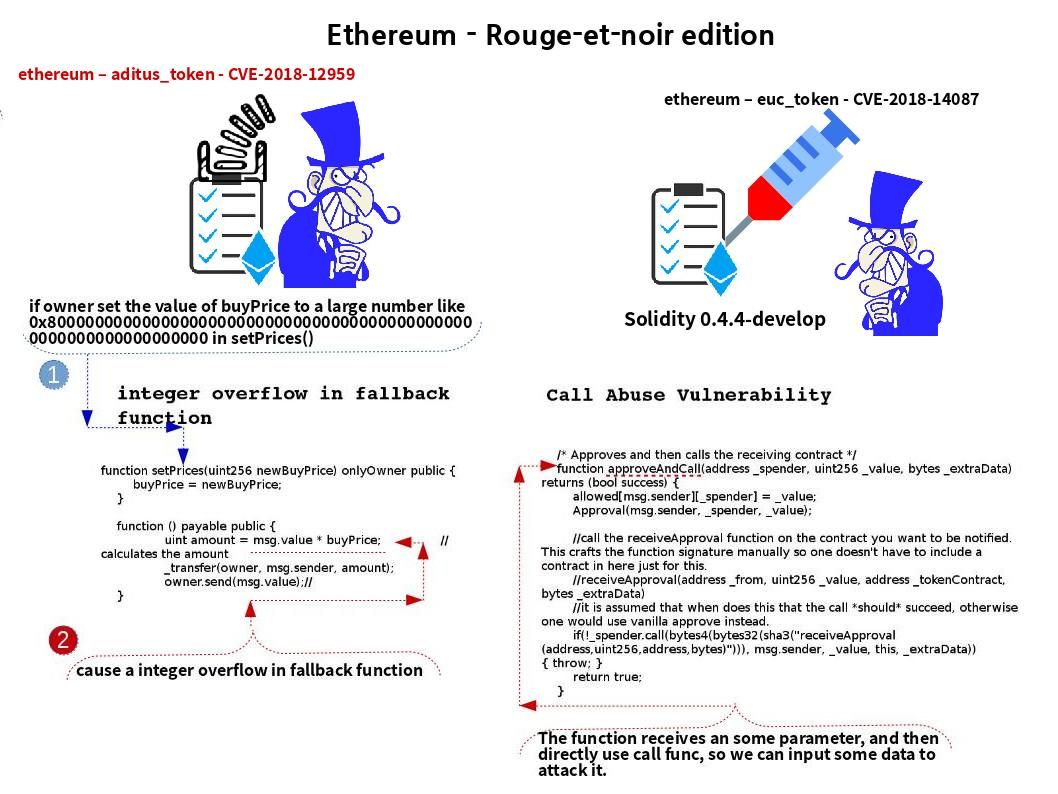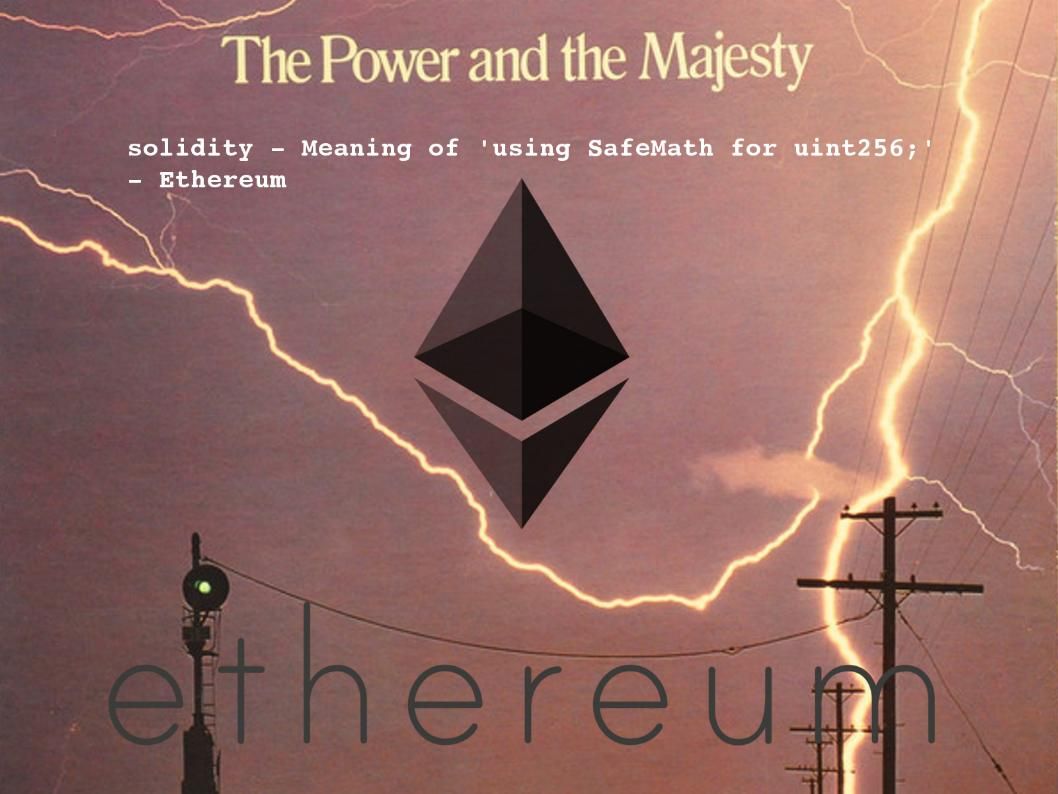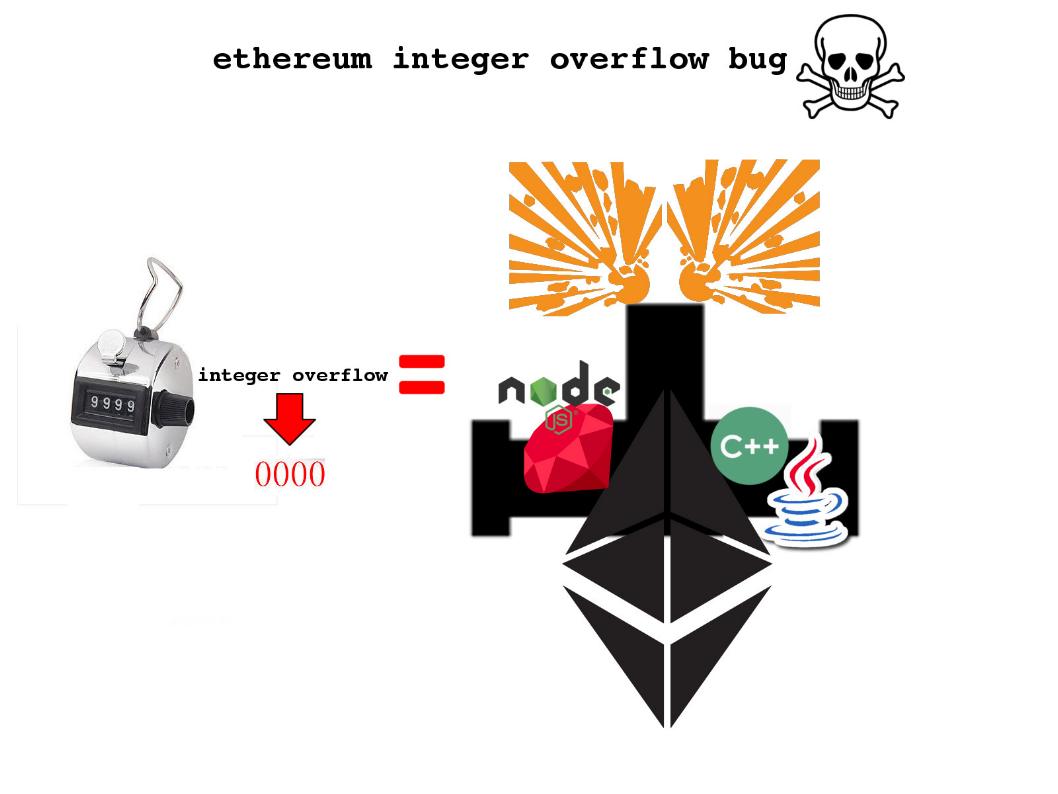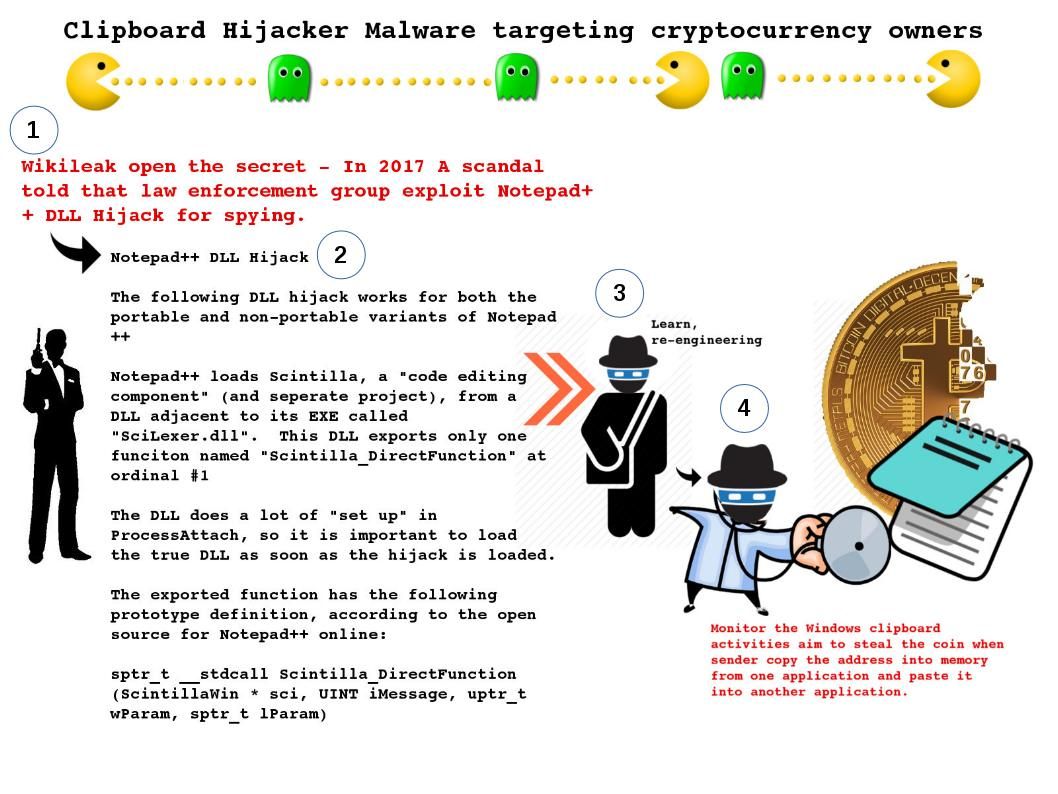| ethereum — aichain_token |
The mintToken function of a smart contract implementation for AIChain, an Ethereum token, has an integer overflow that allows the owner of the contract to set the balance of an arbitrary user to any value. |
CVE-2018-13175 |
https://github.com/BlockChainsSecurity/EtherTokens/tree/master/AIChain |
| ethereum — air-contact_token |
The mintToken function of a smart contract implementation for Air-Contact Token (AIR), an Ethereum token, has an integer overflow that allows the owner of the contract to set the balance of an arbitrary user to any value. |
CVE-2018-13179 |
https://github.com/BlockChainsSecurity/EtherTokens/tree/master/AirContactToken |
| ethereum — alex_token |
The mintToken function of a smart contract implementation for ALEX, an Ethereum token, has an integer overflow that allows the owner of the contract to set the balance of an arbitrary user to any value. |
CVE-2018-13162 |
https://github.com/BlockChainsSecurity/EtherTokens/tree/master/ALEX%20%28ALEX%29 |
| ethereum — appcoins_token |
The mintToken function of a smart contract implementation for appcoins (APPC), an Ethereum token, has an integer overflow that allows the owner of the contract to set the balance of an arbitrary user to any value. |
CVE-2018-13185 |
https://github.com/BlockChainsSecurity/EtherTokens/tree/master/appcoins |
| ethereum — assettoken |
The mintToken function of a smart contract implementation for AssetToken, an Ethereum token, has an integer overflow that allows the owner of the contract to set the balance of an arbitrary user to any value. |
CVE-2018-13158 |
https://github.com/BlockChainsSecurity/EtherTokens/tree/master/AssetToken |
| ethereum — athleticoin_token |
The mintToken function of a smart contract implementation for AthletiCoin (ATHA), an Ethereum token, has an integer overflow that allows the owner of the contract to set the balance of an arbitrary user to any value. |
CVE-2018-13166 |
https://github.com/BlockChainsSecurity/EtherTokens/tree/master/AthletiCoin |
| ethereum — atlant_token |
ATLANT (ATL) is a smart contract running on Ethereum. The mint function has an integer overflow that allows minted tokens to be arbitrarily retrieved by the contract owner. |
CVE-2018-11429 |
https://github.com/dwfault/AirTokens/tree/master/ATLANT |
| ethereum — azuriontoken |
The mintToken function of a smart contract implementation for AzurionToken (AZU), an Ethereum token, has an integer overflow that allows the owner of the contract to set the balance of an arbitrary user to any value. |
CVE-2018-13068 |
https://github.com/VenusADLab/EtherTokens/blob/master/AzurionToken/AzurionToken.md |
| ethereum — bankcoin_token |
The mintToken function of a smart contract implementation for bankcoin (BNK), an Ethereum token, has an integer overflow that allows the owner of the contract to set the balance of an arbitrary user to any value. |
CVE-2018-13159 |
https://github.com/BlockChainsSecurity/EtherTokens/tree/master/bankcoin |
| ethereum — betcash_token |
The mintToken function of a smart contract implementation for Betcash (BC), an Ethereum token, has an integer overflow that allows the owner of the contract to set the balance of an arbitrary user to any value. |
CVE-2018-13076 |
https://github.com/VenusADLab/EtherTokens/blob/master/Betcash/Betcash.md |
| ethereum — bitotal_token |
Bitotal (TFUND) is a smart contract running on Ethereum. The mintTokens function has an integer overflow that allows minted tokens to be arbitrarily retrieved by the contract owner. |
CVE-2018-13130 |
https://github.com/dwfault/AirTokens/tree/master/Bitotal |
| ethereum — bittelux_token |
The transfer and transferFrom functions of a smart contract implementation for Bittelux (BTX), an Ethereum token, have an integer overflow. |
CVE-2018-13326 |
https://github.com/safecomet/EtherTokens/blob/master/Bittelux%20%28BTX%29/Bittelux%20%28BTX%29.md |
| ethereum — bonustoken |
The mintToken function of a smart contract implementation for bonusToken (BNS), an Ethereum token, has an integer overflow that allows the owner of the contract to set the balance of an arbitrary user to any value. |
CVE-2018-13156 |
https://github.com/BlockChainsSecurity/EtherTokens/tree/master/bonusToken |
| ethereum — bzxcoin_token |
The mintToken function of a smart contract implementation for bzxcoin (BZX), an Ethereum token, has an integer overflow that allows the owner of the contract to set the balance of an arbitrary user to any value. |
CVE-2018-13172 |
https://github.com/BlockChainsSecurity/EtherTokens/tree/master/bzxcoin |
| ethereum — carbon_exchange_coin_token |
The mintToken function of a smart contract implementation for Carbon Exchange Coin Token (CEC), an Ethereum token, has an integer overflow that allows the owner of the contract to set the balance of an arbitrary user to any value. |
CVE-2018-13075 |
https://github.com/VenusADLab/EtherTokens/blob/master/CarbonExchangeCoinToken/CarbonExchangeCoinToken.md |
| ethereum — ccindex10_token |
The mintToken function of a smart contract implementation for CCindex10 (T10), an Ethereum token, has an integer overflow that allows the owner of the contract to set the balance of an arbitrary user to any value. |
CVE-2018-13071 |
https://github.com/VenusADLab/EtherTokens/blob/master/CCindexToken/CCindexToken.md |
| ethereum — chuchulingaigo_token |
The transfer and transferFrom functions of a smart contract implementation for ChuCunLingAIGO (CCLAG), an Ethereum token, have an integer overflow. |
CVE-2018-13327 |
https://github.com/safecomet/EtherTokens/blob/master/ChuCunLingAIGO%20%28CCLAG%29/ChuCunLingAIGO%20%28CCLAG%29.md |
| ethereum — cibn_live_token |
The mintToken function of a smart contract implementation for CIBN Live Token (CIBN LIVE), an Ethereum token, has an integer overflow that allows the owner of the contract to set the balance of an arbitrary user to any value. |
CVE-2018-13187 |
https://github.com/BlockChainsSecurity/EtherTokens/tree/master/CIBNLiveInteractiveToken |
| ethereum — coffeecoin_token |
The mintToken function of a smart contract implementation for Coffeecoin (COFFEE), an Ethereum token, has an integer overflow that allows the owner of the contract to set the balance of an arbitrary user to any value. |
CVE-2018-13072 |
https://github.com/VenusADLab/EtherTokens/blob/master/Coffeecoin/Coffeecoin.md |
| ethereum — coinstar_token |
The mintToken function of a smart contract implementation for Coinstar (CSTR), an Ethereum token, has an integer overflow that allows the owner of the contract to set the balance of an arbitrary user to any value. |
CVE-2018-13087 |
https://github.com/VenusADLab/EtherTokens/blob/master/MyAdvancedToken/MyAdvancedToken.md |
| ethereum — cointoken |
The sell function of a smart contract implementation for CoinToken, an Ethereum token, has an integer overflow in which “amount * sellPrice” can be zero, consequently reducing a seller’s assets. |
CVE-2018-13217 |
https://github.com/BlockChainsSecurity/EtherTokens/tree/master/CoinToken |
| ethereum — cranoo_token |
The mintToken function of a smart contract implementation for Cranoo (CRN), an Ethereum token, has an integer overflow that allows the owner of the contract to set the balance of an arbitrary user to any value. |
CVE-2018-13195 |
https://github.com/BlockChainsSecurity/EtherTokens/tree/master/CranooAdvanced |
| ethereum — crowdnext_token |
The sell function of a smart contract implementation for Crowdnext (CNX), an Ethereum token, has an integer overflow in which “amount * sellPrice” can be zero, consequently reducing a seller’s assets. |
CVE-2018-13228 |
https://github.com/BlockChainsSecurity/EtherTokens/tree/master/Crowdnext |
| ethereum — cryptoabs_token |
The mintToken function of a smart contract implementation for CryptoABS (ABS), an Ethereum token, has an integer overflow that allows the owner of the contract to set the balance of an arbitrary user to any value. |
CVE-2018-13174 |
https://github.com/BlockChainsSecurity/EtherTokens/tree/master/CryptoABS |
| ethereum — cryptonitexcoin_token |
The mintToken function of a smart contract implementation for CryptonitexCoin, an Ethereum token, has an integer overflow that allows the owner of the contract to set the balance of an arbitrary user to any value. |
CVE-2018-13157 |
https://github.com/BlockChainsSecurity/EtherTokens/tree/master/CryptonitexCoin |
| ethereum — ctb_token |
The mintToken function of a smart contract implementation for CTB, an Ethereum token, has an integer overflow that allows the owner of the contract to set the balance of an arbitrary user to any value. |
CVE-2018-13077 |
https://github.com/VenusADLab/EtherTokens/blob/master/CTB/CTB.md |
| ethereum — dateme_token |
The sell function of a smart contract implementation for DateMe (DMX) (Contract Name: ProgressiveToken), an Ethereum token, has an integer overflow in which “amount * sellPrice” can be zero, consequently reducing a seller’s assets. |
CVE-2018-13200 |
https://github.com/BlockChainsSecurity/EtherTokens/tree/master/ProgressiveToken |
| ethereum — destineed_token |
The sell function of a smart contract implementation for DestiNeed (DSN), an Ethereum token, has an integer overflow in which “amount * sellPrice” can be zero, consequently reducing a seller’s assets. |
CVE-2018-13230 |
https://github.com/BlockChainsSecurity/EtherTokens/tree/master/DestiNeedToken |
| ethereum — dvchain_token |
The mintToken function of a smart contract implementation for DVChain, an Ethereum token, has an integer overflow that allows the owner of the contract to set the balance of an arbitrary user to any value. |
CVE-2018-13190 |
https://github.com/BlockChainsSecurity/EtherTokens/tree/master/DVChain |
| ethereum — dychain_token |
The mintToken function of a smart contract implementation for DYchain (DYC), an Ethereum token, has an integer overflow that allows the owner of the contract to set the balance of an arbitrary user to any value. |
CVE-2018-13069 |
https://github.com/VenusADLab/EtherTokens/blob/master/DYC/DYC.md |
| ethereum — easy_trading_token |
The transfer and transferFrom functions of a smart contract implementation for Easy Trading Token (ETT), an Ethereum token, have an integer overflow. |
CVE-2018-13113 |
https://github.com/safecomet/EtherTokens/tree/master/Easy%20Trading%20Token%20%28ETT%29 |
| ethereum — ectoints_token |
The mintToken function of a smart contract implementation for ECToints (ECT) (Contract Name: ECPoints), an Ethereum token, has an integer overflow that allows the owner of the contract to set the balance of an arbitrary user to any value. |
CVE-2018-13178 |
https://github.com/BlockChainsSecurity/EtherTokens/tree/master/ECPoints |
| ethereum — eliteshippertoken |
The mintToken function of a smart contract implementation for EliteShipperToken (ESHIP), an Ethereum token, has an integer overflow that allows the owner of the contract to set the balance of an arbitrary user to any value. |
CVE-2018-13173 |
https://github.com/BlockChainsSecurity/EtherTokens/tree/master/EliteShipperToken |
| ethereum — encryptedtoken |
The mintToken function of a smart contract implementation for EncryptedToken (ECC), an Ethereum token, has an integer overflow that allows the owner of the contract to set the balance of an arbitrary user to any value. |
CVE-2018-13070 |
https://github.com/VenusADLab/EtherTokens/blob/master/EncryptedToken/EncryptedToken.md |
| ethereum — enter_token |
The sell function of a smart contract implementation for ENTER (ENTR) (Contract Name: EnterToken), an Ethereum token, has an integer overflow in which “amount * sellPrice” can be zero, consequently reducing a seller’s assets. |
CVE-2018-13231 |
https://github.com/BlockChainsSecurity/EtherTokens/tree/master/EnterToken |
| ethereum — enter_token |
The sell function of a smart contract implementation for ENTER (ENTR) (Contract Name: EnterCoin), an Ethereum token, has an integer overflow in which “amount * sellPrice” can be zero, consequently reducing a seller’s assets. |
CVE-2018-13232 |
https://github.com/BlockChainsSecurity/EtherTokens/tree/master/EnterCoin |
| ethereum — eppcoin_token |
The mintToken function of a smart contract implementation for EPPCOIN (EPP), an Ethereum token, has an integer overflow that allows the owner of the contract to set the balance of an arbitrary user to any value. |
CVE-2018-13164 |
https://github.com/BlockChainsSecurity/EtherTokens/tree/master/MyEPPToken |
| ethereum — ethercash_token |
The sell function of a smart contract implementation for ETHERCASH (ETC), an Ethereum token, has an integer overflow in which “amount * sellPrice” can be zero, consequently reducing a seller’s assets. |
CVE-2018-13204 |
https://github.com/BlockChainsSecurity/EtherTokens/tree/master/ETHERCASH |
| ethereum — ethereum_cash_pro_token |
The mintToken function of a smart contract implementation for Ethereum Cash Pro (ECP), an Ethereum token, has an integer overflow that allows the owner of the contract to set the balance of an arbitrary user to any value. |
CVE-2018-13169 |
https://github.com/BlockChainsSecurity/EtherTokens/tree/master/Ethereum_Cash_Pro_Coin |
| ethereum — ethereumblack_token |
The mintToken function of a smart contract implementation for ETHEREUMBLACK (ETCBK), an Ethereum token, has an integer overflow that allows the owner of the contract to set the balance of an arbitrary user to any value. |
CVE-2018-13073 |
https://github.com/VenusADLab/EtherTokens/blob/master/ETHEREUMBLACK/ETHEREUMBLACK.md |
| ethereum — ethereumblack_token |
The sell function of a smart contract implementation for ETHEREUMBLACK (ETCBK), an Ethereum token, has an integer overflow in which “amount * sellPrice” can be zero, consequently reducing a seller’s assets. |
CVE-2018-13199 |
https://github.com/BlockChainsSecurity/EtherTokens/blob/master/ETHEREUMBLACK/sell%20integer%20overflow.md |
| ethereum — ethereumlegit_token |
The sell function of a smart contract implementation for EthereumLegit, an Ethereum token, has an integer overflow in which “amount * sellPrice” can be zero, consequently reducing a seller’s assets. |
CVE-2018-13212 |
https://github.com/BlockChainsSecurity/EtherTokens/tree/master/EthereumLegit |
| ethereum — ethernet_cash_token |
The mintToken function of a smart contract implementation for Ethernet Cash (ENC), an Ethereum token, has an integer overflow that allows the owner of the contract to set the balance of an arbitrary user to any value. |
CVE-2018-13163 |
https://github.com/BlockChainsSecurity/EtherTokens/tree/master/Ethernet%20Cash%20%28ENC%29 |
| ethereum — etherty_token |
Etherty Token (ETY) is a smart contract running on Ethereum. The mint function has an integer overflow that allows minted tokens to be arbitrarily retrieved by the contract owner. |
CVE-2018-13128 |
https://github.com/dwfault/AirTokens/tree/master/ETY |
| ethereum — etktokens |
The mintToken function of a smart contract implementation for etktokens (ETK), an Ethereum token, has an integer overflow that allows the owner of the contract to set the balance of an arbitrary user to any value. |
CVE-2018-13160 |
https://github.com/BlockChainsSecurity/EtherTokens/tree/master/etktokens |
| ethereum — extreme_coin_token |
The sell function of a smart contract implementation for Extreme Coin (XT) (Contract Name: ExtremeToken), an Ethereum token, has an integer overflow in which “amount * sellPrice” can be zero, consequently reducing a seller’s assets. |
CVE-2018-13221 |
https://github.com/BlockChainsSecurity/EtherTokens/tree/master/ExtremeToken |
| ethereum — fibtoken |
The mintToken function of a smart contract implementation for FIBToken (FIB), an Ethereum token, has an integer overflow that allows the owner of the contract to set the balance of an arbitrary user to any value. |
CVE-2018-13074 |
https://github.com/VenusADLab/EtherTokens/blob/master/FIBToken/FIBToken.md |
| ethereum — freecoin_token |
The mintToken function of a smart contract implementation for FreeCoin (FREE), an Ethereum token, has an integer overflow that allows the owner of the contract to set the balance of an arbitrary user to any value. |
CVE-2018-13085 |
https://github.com/VenusADLab/EtherTokens/blob/master/FreeCoin/FreeCoin.md |
| ethereum — futures_pease_token |
The mintToken function of a smart contract implementation for Futures Pease (FP), an Ethereum token, has an integer overflow that allows the owner of the contract to set the balance of an arbitrary user to any value. |
CVE-2018-13088 |
https://github.com/VenusADLab/EtherTokens/blob/master/TokenERC20/TokenERC20.md |
| ethereum — gemchain_token |
The mintToken function of a smart contract implementation for GEMCHAIN (GEM), an Ethereum token, has an integer overflow that allows the owner of the contract to set the balance of an arbitrary user to any value. |
CVE-2018-13155 |
https://github.com/BlockChainsSecurity/EtherTokens/blob/master/GEMCHAIN/mint%20integer%20overflow.md |
| ethereum — gmile_token |
The sell function of a smart contract implementation for GMile, an Ethereum token, has an integer overflow in which “amount * sellPrice” can be zero, consequently reducing a seller’s assets. |
CVE-2018-13214 |
https://github.com/BlockChainsSecurity/EtherTokens/tree/master/GMile |
| ethereum — go_ethereum |
The GetBlockHeadersMsg handler in the LES protocol implementation in Go Ethereum (aka geth) before 1.8.11 may lead to an access violation because of an integer signedness error for the array index, which allows attackers to launch a Denial of Service attack by sending a packet with a -1 query.Skip value. The vulnerable remote node would be crashed by such an attack immediately, aka the EPoD (Ethereum Packet of Death) issue. |
CVE-2018-12018 |
https://github.com/ethereum/go-ethereum/releases/tag/v1.8.11 |
| ethereum — good_time_coin_token |
The mintToken function of a smart contract implementation for Good Time Coin (GTY), an Ethereum token, has an integer overflow that allows the owner of the contract to set the balance of an arbitrary user to any value. |
CVE-2018-13084 |
https://github.com/VenusADLab/EtherTokens/blob/master/GoodTimeCoin/GoodTimeCoin.md |
| ethereum — goodto_token |
The mintToken function of a smart contract implementation for GoodTo (GTO), an Ethereum token, has an integer overflow that allows the owner of the contract to set the balance of an arbitrary user to any value. |
CVE-2018-13079 |
https://github.com/VenusADLab/EtherTokens/blob/master/GoodTo/GoodTo.md |
| ethereum — goutex_token |
The mintToken function of a smart contract implementation for Goutex (GTX), an Ethereum token, has an integer overflow that allows the owner of the contract to set the balance of an arbitrary user to any value. |
CVE-2018-13080 |
https://github.com/VenusADLab/EtherTokens/blob/master/Goutex/Goutex.md |
| ethereum — greenmed_token |
The sell function of a smart contract implementation for GreenMed (GRMD), an Ethereum token, has an integer overflow in which “amount * sellPrice” can be zero, consequently reducing a seller’s assets. |
CVE-2018-13216 |
https://github.com/BlockChainsSecurity/EtherTokens/tree/master/GreenMed |
| ethereum — growchain_token |
The _sell function of a smart contract implementation for GROWCHAIN (GROW), an Ethereum token, has an integer overflow. |
CVE-2018-13325 |
https://github.com/safecomet/EtherTokens/blob/master/GROWCHAIN%20%28GROW%29/GROWCHAIN%20%28GROW%29.md |
| ethereum — gsi_token |
The sell function of a smart contract implementation for GSI, an Ethereum token, has an integer overflow in which “amount * sellPrice” can be zero, consequently reducing a seller’s assets. |
CVE-2018-13233 |
https://github.com/BlockChainsSecurity/EtherTokens/tree/master/GSI |
| ethereum — gvtoken_genesis_vision |
GVToken Genesis Vision (GVT) is a smart contract running on Ethereum. The mint function has an integer overflow that allows minted tokens to be arbitrarily retrieved by the contract owner. |
CVE-2018-11335 |
https://github.com/dwfault/AirTokens/tree/master/GVT |
| ethereum — gzs_token |
The mintToken function of a smart contract implementation for GZS Token (GZS), an Ethereum token, has an integer overflow that allows the owner of the contract to set the balance of an arbitrary user to any value. |
CVE-2018-13081 |
https://github.com/VenusADLab/EtherTokens/blob/master/GZSToken/GZSToken.md |
| ethereum — hentaisolo_token |
The mintToken function of a smart contract implementation for hentaisolo (HAO), an Ethereum token, has an integer overflow that allows the owner of the contract to set the balance of an arbitrary user to any value. |
CVE-2018-13193 |
https://github.com/BlockChainsSecurity/EtherTokens/tree/master/hentaisolo |
| ethereum — iadowr_coin_token |
The mintToken function of a smart contract implementation for IADOWR Coin (IAD), an Ethereum token, has an integer overflow that allows the owner of the contract to set the balance of an arbitrary user to any value. |
CVE-2018-13086 |
https://github.com/VenusADLab/EtherTokens/blob/master/IADOWR/IADOWR.md |
| ethereum — ico_dollar_token |
The sell function of a smart contract implementation for ICO Dollar (ICOD), an Ethereum token, has an integer overflow in which “amount * sellPrice” can be zero, consequently reducing a seller’s assets. |
CVE-2018-13218 |
https://github.com/BlockChainsSecurity/EtherTokens/tree/master/ICODollar |
| ethereum — imm_coin_token |
The mintToken function of a smart contract implementation for IMM Coin (IMC), an Ethereum token, has an integer overflow that allows the owner of the contract to set the balance of an arbitrary user to any value. |
CVE-2018-13180 |
https://github.com/BlockChainsSecurity/EtherTokens/tree/master/IMMCoin |
| ethereum — javaswaptest_token |
The mintToken function of a smart contract implementation for JavaSwapTest (JST), an Ethereum token, has an integer overflow. |
CVE-2018-13145 |
https://github.com/safecomet/EtherTokens/blob/master/JavaSwapTest%20%28JST%29/JavaSwapTest%20%28JST%29.md |
| ethereum — jitech_token |
The mintToken function of a smart contract implementation for Jitech (JTH), an Ethereum token, has an integer overflow that allows the owner of the contract to set the balance of an arbitrary user to any value. |
CVE-2018-13078 |
https://github.com/VenusADLab/EtherTokens/blob/master/Jitech/Jitech.md |
| ethereum — jobscoin_token |
The mintToken function of a smart contract implementation for Jobscoin (JOB), an Ethereum token, has an integer overflow that allows the owner of the contract to set the balance of an arbitrary user to any value. |
CVE-2018-13192 |
https://github.com/BlockChainsSecurity/EtherTokens/tree/master/Jobscoin |
| ethereum — justdcoin_token |
The mintToken function of a smart contract implementation for JustDCoin (JustD), an Ethereum token, has an integer overflow that allows the owner of the contract to set the balance of an arbitrary user to any value. |
CVE-2018-13165 |
https://github.com/BlockChainsSecurity/EtherTokens/tree/master/DCoin |
| ethereum — jwc_token |
The mintToken function of a smart contract implementation for JWC, an Ethereum token, has an integer overflow that allows the owner of the contract to set the balance of an arbitrary user to any value. |
CVE-2018-13183 |
https://github.com/BlockChainsSecurity/EtherTokens/tree/master/JWCToken |
| ethereum — ladatoken_token |
The mintToken function of a smart contract implementation for LadaToken (LDT), an Ethereum token, has an integer overflow that allows the owner of the contract to set the balance of an arbitrary user to any value. |
CVE-2018-13171 |
https://github.com/BlockChainsSecurity/EtherTokens/tree/master/LadaToken |
| ethereum — lef_token |
The mintToken, buy, and sell functions of a smart contract implementation for LEF, an Ethereum token, have an integer overflow. |
CVE-2018-13146 |
https://github.com/safecomet/EtherTokens/blob/master/LEF%20%28LEF%29/LEF%20%28LEF%29.md |
| ethereum — link_platform_token |
The mint function of a smart contract implementation for Link Platform (LNK), an Ethereum ERC20 token, has an integer overflow that allows the owner of the contract to set the balance of an arbitrary user to any value. |
CVE-2018-13041 |
https://github.com/dwfault/AirTokens/blob/master/Link_Platform__LNK_/mint%20integer%20overflow.md |
| ethereum — loncoin_token |
The mintToken function of a smart contract implementation for loncoin (LON), an Ethereum token, has an integer overflow that allows the owner of the contract to set the balance of an arbitrary user to any value. |
CVE-2018-13182 |
https://github.com/BlockChainsSecurity/EtherTokens/tree/master/loncoin |
| ethereum — mavcash_token |
The sell function of a smart contract implementation for MAVCash, an Ethereum token, has an integer overflow in which “amount * sellPrice” can be zero, consequently reducing a seller’s assets. |
CVE-2018-13220 |
https://github.com/BlockChainsSecurity/EtherTokens/tree/master/MAVCash |
| ethereum — miningrigrentals_token |
The mintToken function of a smart contract implementation for MiningRigRentals Token (MRR), an Ethereum token, has an integer overflow that allows the owner of the contract to set the balance of an arbitrary user to any value. |
CVE-2018-13177 |
https://github.com/BlockChainsSecurity/EtherTokens/tree/master/MiningRigRentalsToken |
| ethereum — mmtcoin_token |
The mintToken function of a smart contract implementation for MMTCoin (MMT), an Ethereum token, has an integer overflow that allows the owner of the contract to set the balance of an arbitrary user to any value. |
CVE-2018-13186 |
https://github.com/BlockChainsSecurity/EtherTokens/tree/master/MMTCoinToken |
| ethereum — modi_token |
The mintToken function of a smart contract implementation for MODI Token (MODI), an Ethereum token, has an integer overflow that allows the owner of the contract to set the balance of an arbitrary user to any value. |
CVE-2018-13082 |
https://github.com/VenusADLab/EtherTokens/blob/master/ModiTokenERC20/ModiTokenERC20.md |
| ethereum — moneychainnet_token |
The sell function of a smart contract implementation for MoneyChainNet (MCN), an Ethereum token, has an integer overflow in which “amount * sellPrice” can be zero, consequently reducing a seller’s assets. |
CVE-2018-13227 |
https://github.com/BlockChainsSecurity/EtherTokens/tree/master/MoneyChainNetToken |
| ethereum — moneytree_token |
The sell function of a smart contract implementation for MoneyTree (TREE), an Ethereum token, has an integer overflow in which “amount * sellPrice” can be zero, consequently reducing a seller’s assets. |
CVE-2018-13208 |
https://github.com/BlockChainsSecurity/EtherTokens/tree/master/MoneyTreeToken |
| ethereum — moxyonepresale |
MoxyOnePresale is a smart contract running on Ethereum. The mint function has an integer overflow that allows minted tokens to be arbitrarily retrieved by the contract owner. |
CVE-2018-13126 |
https://github.com/dwfault/AirTokens/tree/master/MoxyOnePresale |
| ethereum — multigames_token |
The mintToken function of a smart contract implementation for MultiGames (MLT), an Ethereum token, has an integer overflow that allows the owner of the contract to set the balance of an arbitrary user to any value. |
CVE-2018-13161 |
https://github.com/BlockChainsSecurity/EtherTokens/tree/master/MultiGamesToken |
| ethereum — mybo_token |
The sell function of a smart contract implementation for MyBO, an Ethereum token, has an integer overflow in which “amount * sellPrice” can be zero, consequently reducing a seller’s assets. |
CVE-2018-13202 |
https://github.com/BlockChainsSecurity/EtherTokens/tree/master/MyBoToken |
| ethereum — mybo_token |
The mintToken function of a smart contract implementation for MyBO, an Ethereum token, has an integer overflow that allows the owner of the contract to set the balance of an arbitrary user to any value. |
CVE-2018-13188 |
https://github.com/BlockChainsSecurity/EtherTokens/tree/master/MyBoToken |
| ethereum — mytoken |
The sell function of a smart contract implementation for MyToken, an Ethereum token, has an integer overflow in which “amount * sellPrice” can be zero, consequently reducing a seller’s assets. |
CVE-2018-13211 |
https://github.com/BlockChainsSecurity/EtherTokens/tree/master/MyToken |
| ethereum — myylc_token |
The sell function of a smart contract implementation for MyYLC, an Ethereum token, has an integer overflow in which “amount * sellPrice” can be zero, consequently reducing a seller’s assets. |
CVE-2018-13225 |
https://github.com/BlockChainsSecurity/EtherTokens/tree/master/MyYLCToken |
| ethereum — nectar_token |
The sell function of a smart contract implementation for Nectar (NCTR), an Ethereum token, has an integer overflow in which “amount * sellPrice” can be zero, consequently reducing a seller’s assets. |
CVE-2018-13209 |
https://github.com/BlockChainsSecurity/EtherTokens/tree/master/NectarCoin |
| ethereum — objecttoken_token |
The sell function of a smart contract implementation for ObjectToken (OBJ), an Ethereum token, has an integer overflow in which “amount * sellPrice” can be zero, consequently reducing a seller’s assets. |
CVE-2018-13222 |
https://github.com/BlockChainsSecurity/EtherTokens/tree/master/ObjectToken |
| ethereum — ohni_2_token |
The sell function of a smart contract implementation for ohni_2 (OHNI), an Ethereum token, has an integer overflow in which “amount * sellPrice” can be zero, consequently reducing a seller’s assets. |
CVE-2018-13205 |
https://github.com/BlockChainsSecurity/EtherTokens/tree/master/Ohni |
| ethereum — pandora_token |
The transfer and transferFrom functions of a smart contract implementation for Pandora (PDX), an Ethereum token, have an integer overflow. |
CVE-2018-13144 |
https://github.com/safecomet/EtherTokens/blob/master/Pandora%20%28PDX%29/Pandora%20%28PDX%29.md |
| ethereum — pfgc_token |
The transfer, transferFrom, and mint functions of a smart contract implementation for PFGc, an Ethereum token, have an integer overflow. |
CVE-2018-13328 |
https://github.com/safecomet/EtherTokens/blob/master/PFGc%20%28PFGc%29/PFGc%20%28PFGc%29.md |
| ethereum — plaza_token |
The mintToken function of a smart contract implementation for Plaza Token (PLAZA), an Ethereum token, has an integer overflow that allows the owner of the contract to set the balance of an arbitrary user to any value. |
CVE-2018-13083 |
https://github.com/VenusADLab/EtherTokens/blob/master/PlazaToken/PlazaToken.md |
| ethereum — porncoin_token |
The sell function of a smart contract implementation for PornCoin (PRNC), an Ethereum token, has an integer overflow in which “amount * sellPrice” can be zero, consequently reducing a seller’s assets. |
CVE-2018-13207 |
https://github.com/BlockChainsSecurity/EtherTokens/tree/master/PornCoin |
| ethereum — providence_crypto_casino_token |
The sell function of a smart contract implementation for Providence Crypto Casino (PVE) (Contract Name: ProvidenceCasinoToken), an Ethereum token, has an integer overflow in which “amount * sellPrice” can be zero, consequently reducing a seller’s assets. |
CVE-2018-13210 |
https://github.com/BlockChainsSecurity/EtherTokens/tree/master/ProvidenceCasinoToken |
| ethereum — providencecasino_token |
The sell function of a smart contract implementation for ProvidenceCasino (PVE), an Ethereum token, has an integer overflow in which “amount * sellPrice” can be zero, consequently reducing a seller’s assets. |
CVE-2018-13206 |
https://github.com/BlockChainsSecurity/EtherTokens/tree/master/PVE |
| ethereum — r_time_token |
The sell function of a smart contract implementation for R Time Token v3 (RS) (Contract Name: RTokenMain), an Ethereum token, has an integer overflow in which “amount * sellPrice” can be zero, consequently reducing a seller’s assets. |
CVE-2018-13223 |
https://github.com/BlockChainsSecurity/EtherTokens/tree/master/RTokenMain |
| ethereum — reimburse_token |
The mintToken function of a smart contract implementation for Reimburse Token (REIM), an Ethereum token, has an integer overflow that allows the owner of the contract to set the balance of an arbitrary user to any value. |
CVE-2018-13092 |
https://github.com/VenusADLab/EtherTokens/blob/master/ReimburseToken/ReimburseToken.md |
| ethereum — ribtidecoin_token |
The sell function of a smart contract implementation for RiptideCoin (RIPT), an Ethereum token, has an integer overflow in which “amount * sellPrice” can be zero, consequently reducing a seller’s assets. |
CVE-2018-13229 |
https://github.com/BlockChainsSecurity/EtherTokens/tree/master/RiptideCoin |
| ethereum — sample_token |
The sell function of a smart contract implementation for Sample Token (STK) (Contract Name: cashBackMintable), an Ethereum token, has an integer overflow in which “amount * sellPrice” can be zero, consequently reducing a seller’s assets. |
CVE-2018-13215 |
https://github.com/BlockChainsSecurity/EtherTokens/tree/master/cashBackMintable |
| ethereum — snoqualmie_coin_token |
The mintToken function of a smart contract implementation for Snoqualmie Coin (SNOW), an Ethereum token, has an integer overflow that allows the owner of the contract to set the balance of an arbitrary user to any value. |
CVE-2018-13170 |
https://github.com/BlockChainsSecurity/EtherTokens/tree/master/SnoqualmieCoin |
| ethereum — sp8de_presale_token |
SP8DE PreSale Token (DSPX) is a smart contract running on Ethereum. The mint function has an integer overflow that allows minted tokens to be arbitrarily retrieved by the contract owner. |
CVE-2018-13127 |
https://github.com/dwfault/AirTokens/tree/master/DSPX |
| ethereum — sp8de_token |
SP8DE Token (SPX) is a smart contract running on Ethereum. The mint function has an integer overflow that allows minted tokens to be arbitrarily retrieved by the contract owner. |
CVE-2018-13129 |
https://github.com/dwfault/AirTokens/blob/master/SPXToken/mint%20interger%20overflow.md |
| ethereum — spadeico |
Spadeico is a smart contract running on Ethereum. The mint function has an integer overflow that allows minted tokens to be arbitrarily retrieved by the contract owner. |
CVE-2018-13132 |
https://github.com/dwfault/AirTokens/tree/master/SpadeICO |
| ethereum — spadepresale |
SpadePreSale is a smart contract running on Ethereum. The mint function has an integer overflow that allows minted tokens to be arbitrarily retrieved by the contract owner. |
CVE-2018-13131 |
https://github.com/dwfault/AirTokens/tree/master/SpadePreSale |
| ethereum — stex_exchange_ico_token |
The sell function of a smart contract implementation for STeX Exchange ICO (STE), an Ethereum token, has an integer overflow in which “amount * sellPrice” can be zero, consequently reducing a seller’s assets. |
CVE-2018-13198 |
https://github.com/BlockChainsSecurity/EtherTokens/tree/master/STE |
| ethereum — sumocoin_token |
The mintToken function of a smart contract implementation for sumocoin (SUMO), an Ethereum token, has an integer overflow that allows the owner of the contract to set the balance of an arbitrary user to any value. |
CVE-2018-13091 |
https://github.com/VenusADLab/EtherTokens/blob/master/sumocoin/sumocoin.md |
| ethereum — super_carbon_coin_token |
The mintToken function of a smart contract implementation for Super Carbon Coin (SCC), an Ethereum token, has an integer overflow that allows the owner of the contract to set the balance of an arbitrary user to any value. |
CVE-2018-13191 |
https://github.com/BlockChainsSecurity/EtherTokens/tree/master/SuperCarbonCoinToken |
| ethereum — swaptoken_token |
The sellBuyerTokens function of a smart contract implementation for SwapToken, an Ethereum token, has an integer overflow in which “amount * sellPrice” can be zero, consequently reducing a seller’s assets. |
CVE-2018-13203 |
https://github.com/BlockChainsSecurity/EtherTokens/tree/master/SwapToken |
| ethereum — t-swap-token |
The sell function of a smart contract implementation for T-Swap-Token (T-S-T), an Ethereum token, has an integer overflow in which “amount * sellPrice” can be zero, consequently reducing a seller’s assets. |
CVE-2018-13196 |
https://github.com/BlockChainsSecurity/EtherTokens/tree/master/TSwap |
| ethereum — titok-ticket_token |
The sell function of a smart contract implementation for TiTok – Ticket Token (Contract Name: MyAdvancedToken7), an Ethereum token, has an integer overflow in which “amount * sellPrice” can be zero, consequently reducing a seller’s assets. |
CVE-2018-13201 |
https://github.com/BlockChainsSecurity/EtherTokens/tree/master/MyAdvancedToken7 |
| ethereum — tongtong_coin_token |
The mintToken function of a smart contract implementation for TongTong Coin (TTCoin), an Ethereum token, has an integer overflow that allows the owner of the contract to set the balance of an arbitrary user to any value. |
CVE-2018-13194 |
https://github.com/BlockChainsSecurity/EtherTokens/tree/master/TTCoin |
| ethereum — travelcoin_token |
The sell function of a smart contract implementation for TravelCoin (TRV), an Ethereum token, has an integer overflow in which “amount * sellPrice” can be zero, consequently reducing a seller’s assets. |
CVE-2018-13213 |
https://github.com/BlockChainsSecurity/EtherTokens/tree/master/TravelCoinToken |
| ethereum — travelzedi_token |
The mintToken function of a smart contract implementation for TravelZedi Token (ZEDI), an Ethereum token, has an integer overflow that allows the owner of the contract to set the balance of an arbitrary user to any value. |
CVE-2018-13184 |
https://github.com/BlockChainsSecurity/EtherTokens/tree/master/TravelZediToken |
| ethereum — troo_token |
The mintToken function of a smart contract implementation for Troo, an Ethereum token, has an integer overflow that allows the owner of the contract to set the balance of an arbitrary user to any value. |
CVE-2018-13181 |
https://github.com/BlockChainsSecurity/EtherTokens/tree/master/Troo |
| ethereum — trust_zen_token |
The mintToken function of a smart contract implementation for Trust Zen Token (ZEN), an Ethereum token, has an integer overflow that allows the owner of the contract to set the balance of an arbitrary user to any value. |
CVE-2018-13176 |
https://github.com/BlockChainsSecurity/EtherTokens/tree/master/TrustZen |
| ethereum — universal_coin_token |
The mintToken function of a smart contract implementation for Universal Coin (UCOIN), an Ethereum token, has an integer overflow that allows the owner of the contract to set the balance of an arbitrary user to any value. |
CVE-2018-13089 |
https://github.com/VenusADLab/EtherTokens/blob/master/UCoinToken/UCoinToken.md |
| ethereum — unolabo_token |
The mint function of a smart contract implementation for Unolabo (UNLB), an Ethereum token, has an integer overflow that allows the owner of the contract to set the balance of an arbitrary user to any value. |
CVE-2018-13189 |
https://github.com/BlockChainsSecurity/EtherTokens/tree/master/UNLB |
| ethereum — virtual_energy_units_token |
The sell function of a smart contract implementation for Virtual Energy Units (VEU) (Contract Name: VEU_TokenERC20), an Ethereum token, has an integer overflow in which “amount * sellPrice” can be zero, consequently reducing a seller’s assets. |
CVE-2018-13224 |
https://github.com/BlockChainsSecurity/EtherTokens/tree/master/TokenERC20 |
| ethereum — welfare_token_fund_token |
The sell function of a smart contract implementation for Welfare Token Fund (WTF), an Ethereum token, has an integer overflow in which “amount * sellPrice” can be zero, consequently reducing a seller’s assets. |
CVE-2018-13197 |
https://github.com/BlockChainsSecurity/EtherTokens/tree/master/WelfareTokenFund |
| ethereum — yitongcoin_token |
The mintToken function of a smart contract implementation for YiTongCoin (YTC), an Ethereum token, has an integer overflow that allows the owner of the contract to set the balance of an arbitrary user to any value. |
CVE-2018-13090 |
https://github.com/VenusADLab/EtherTokens/blob/master/YiTongCoin/YiTongCoin.md |
| ethereum — ylctoken |
The sell function of a smart contract implementation for YLCToken, an Ethereum token, has an integer overflow in which “amount * sellPrice” can be zero, consequently reducing a seller’s assets. |
CVE-2018-13226 |
https://github.com/BlockChainsSecurity/EtherTokens/tree/master/YLCToken |
| ethereum — yourcoin_token |
The sell function of a smart contract implementation for YourCoin (ICO) (Contract Name: ETH033), an Ethereum token, has an integer overflow in which “amount * sellPrice” can be zero, consequently reducing a seller’s assets. |
CVE-2018-13219 |
https://github.com/BlockChainsSecurity/EtherTokens/tree/master/ETH033 |
| ethereum — yu_gi_oh_token |
The mintToken function of a smart contract implementation for Yu Gi Oh (YGO) (Contract Name: NetkillerBatchToken), an Ethereum token, has an integer overflow that allows the owner of the contract to set the balance of an arbitrary user to any value. |
CVE-2018-13168 |
https://github.com/BlockChainsSecurity/EtherTokens/tree/master/NetkillerBatchToken |
| ethereum — yu_gi_oh_token |
The mintToken function of a smart contract implementation for Yu Gi Oh (YGO), an Ethereum token, has an integer overflow that allows the owner of the contract to set the balance of an arbitrary user to any value. |
CVE-2018-13167 |
https://github.com/BlockChainsSecurity/EtherTokens/tree/master/ygo |
